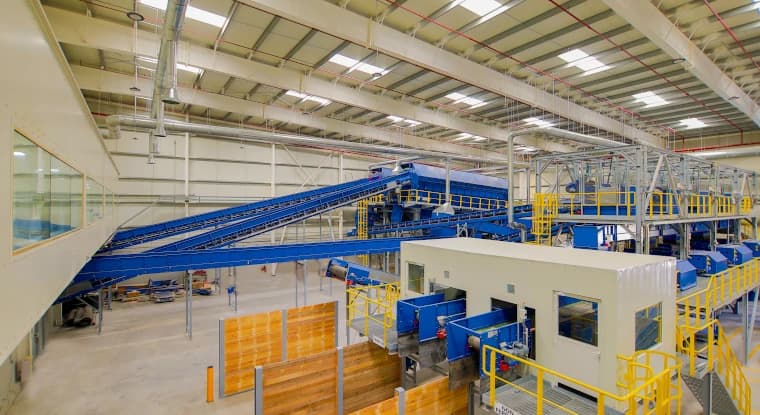
Material Recovery Facility (FARZ)
Operation of a state-of-the-art facility capable of processing 1,200 tonnes of waste per day, employing advanced technologies to recover valuable materials and reduce landfill dependency .
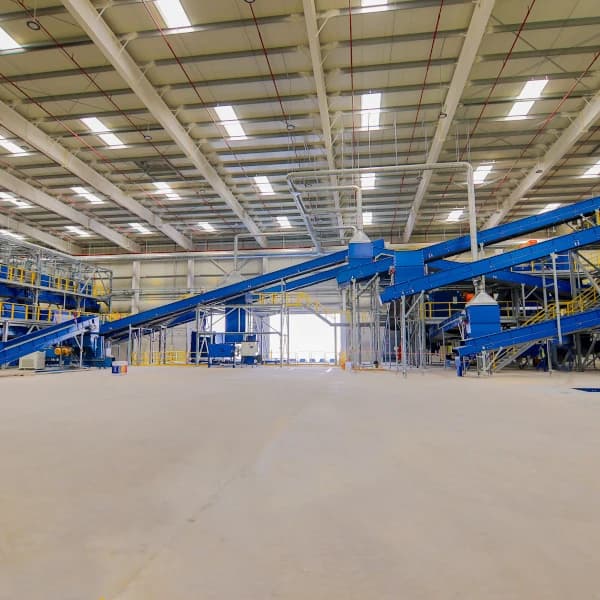
Imdaad offers recycling services to residential communities, commercial establishments, and the industrial sector, positioning us among trusted waste recycling companies delivering responsible and compliant solutions. Supported by a fleet of collection vehicles and a network of pick-up points and community recycling centres, our operations contribute to the broader ecosystem of recycling companies in UAE focused on improving recovery rates and reducing landfill dependency.
Our work includes training and outreach programmes for communities and schools that promote better recycling behaviours and improve recovery rates, including awareness around segregation and paper recycling services aligned with local environmental standards.
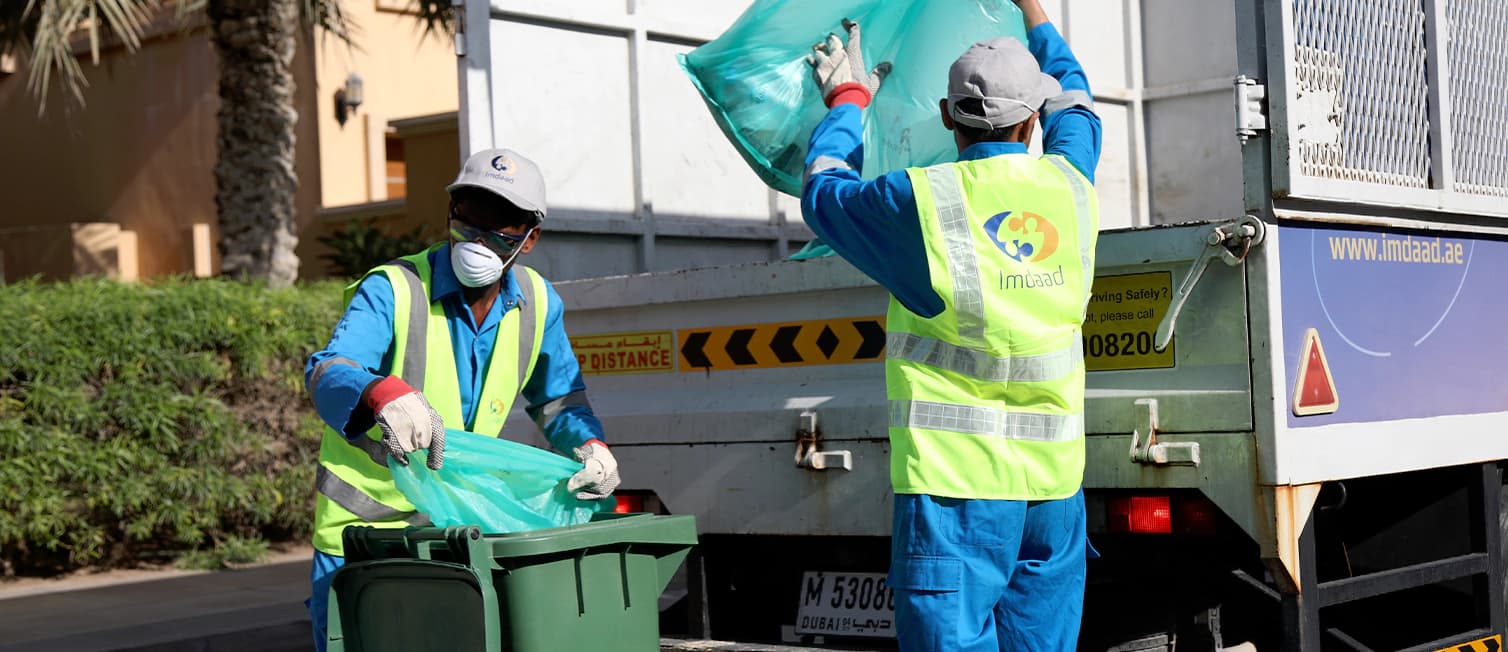

Operation of a state-of-the-art facility capable of processing 1,200 tonnes of waste per day, employing advanced technologies to recover valuable materials and reduce landfill dependency .
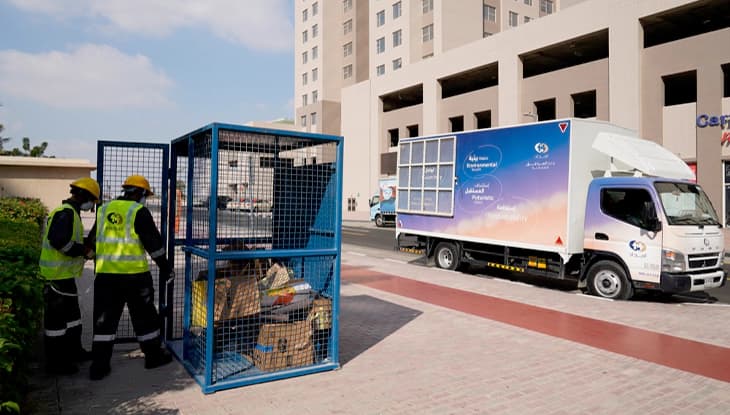
Development of customized recycling strategies for clients, aligning with their operational needs and sustainability objectives.
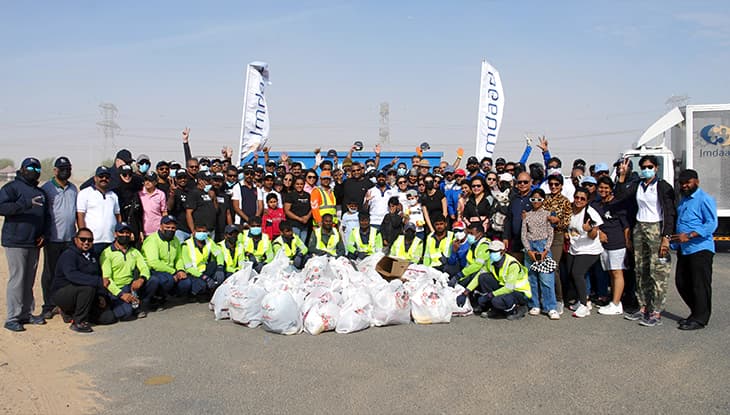
Implementation of educational initiatives to promote recycling practices among communities , schools and organizations.
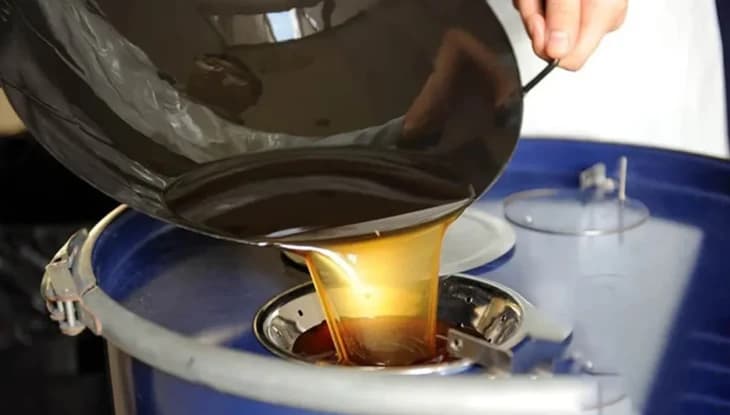
Safe collection and processing of used oil from restaurants and industrial facilities, contributing to resource recovery and environmental protection.
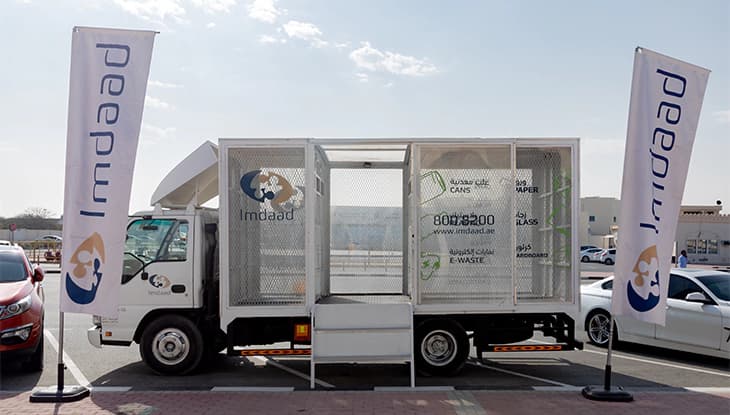
Responsible collection and handling of electronic waste, ensuring proper disposal and recycling of electronic components.
Our team combines operational scale with deep sector knowledge, reflecting the standards expected from leading recycling companies in Dubai. From frontline collection to public education and processing, we handle every stage of the recycling chain with clarity and care.
We help clients meet regulatory requirements, reduce disposal costs and demonstrate progress toward ESG and sustainability goals. Our systems are transparent, our methods are proven, and our people are trained to deliver results that matter, supporting the continued growth of recycling in dubai through reliable services.
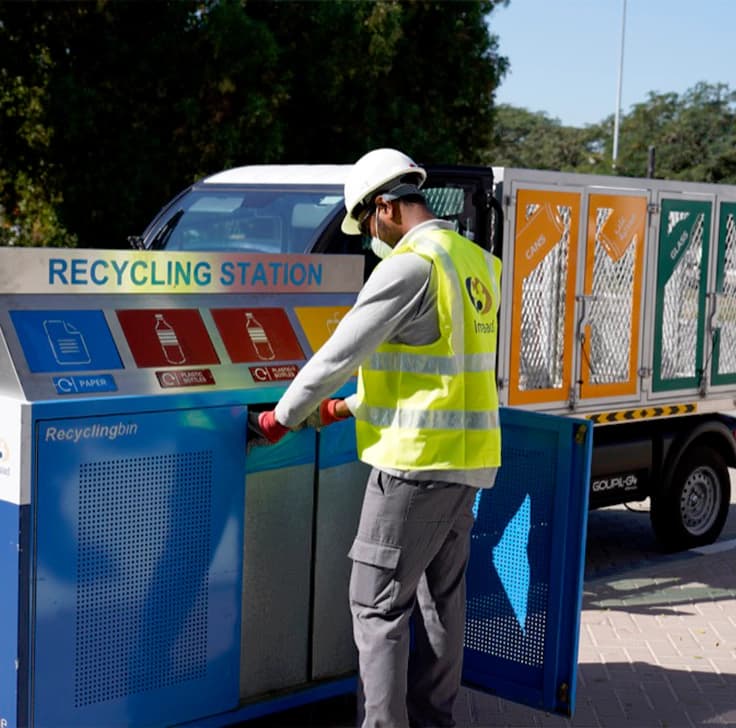
As a trusted provider of professional recycling services, we deliver compliant, efficient, and environmentally responsible recycling solutions across residential, commercial, and industrial sectors
